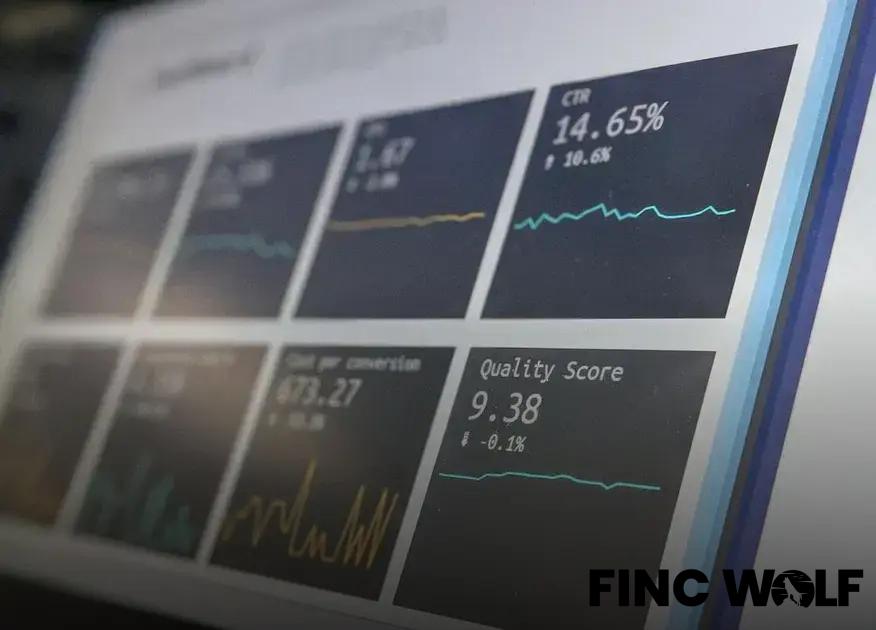Political uncertainty can cause significant upheaval in global markets. Understanding its impact is crucial for investors looking to navigate these turbulent times. Dive into how political events sway stock markets, influence currency trends, and shape long-term economic strategies. By exploring these dynamics, investors can better anticipate market changes and make informed decisions.
Understanding Political Uncertainty
Political uncertainty occurs when there is a lack of clarity about government actions, policies, or stability, which can lead to unpredictability in economic environments. This kind of uncertainty can arise from elections, referenda, changes in leadership, or geopolitical conflicts. Stakeholders like investors, businesses, and governments are particularly concerned with how these uncertainties might affect future economic conditions.
Decision-making becomes Challenging: When there is political uncertainty, decision-makers in businesses often face challenges. For example, business leaders might delay expansion plans or investment decisions because they are unsure about future regulations or taxes. They strive to avoid risk, waiting for more stable conditions before making significant commitments.
Uncertainty in Policies: One of the main components driving political uncertainty is unforeseen policy changes. These could include changes in trade tariffs, tax laws, or regulations affecting specific industries. Sudden shifts can have widespread and sometimes adverse effects on business operations and planning. Policies that are delayed, altered, or overturned based on political transitions add layers of uncertainty, forcing firms to adapt continually.
Market Volatility: Markets dislike uncertainty, and they often respond with volatility, especially in response to political developments. Investors might react quickly, buying or selling stocks and currencies, which adds further volatility. Understanding how political uncertainty influences market behavior helps stakeholders make informed decisions about risk management and investment.
Additionally, companies may allocate resources to lobby for favorable outcomes, which could otherwise be invested in growth or innovation. This redirection can alter competitive dynamics within industries.
Impact on Global Trade:
Political uncertainty can have especially significant effects on global trade. If there is ambiguity about trade agreements or tariffs, it can result in hesitancy among exporters and importers. This hesitancy can lead to decreased trade volumes, disrupt supply chains, and impact pricing and availability of goods.
While political uncertainty is an inherent part of the global landscape, understanding its mechanics and preparing for its potential impacts is crucial for businesses and investors navigating modern markets.
Effects on Stock Markets

Political uncertainty can heavily influence stock markets worldwide. Investors often react to political events by buying or selling stocks, leading to volatility. When there is uncertainty, such as during elections or government changes, businesses may delay investments, affecting stock performance.
The stock market is a barometer of economic confidence. During uncertain political times, consumer confidence might wane, impacting company revenues and ultimately reflecting on stock prices. Key indices such as the S&P 500 or FTSE 100 may experience significant fluctuations based on political news.
The type and scope of political events can determine the extent of the impact. For example, trade agreements or disagreements can particularly influence sectors dependent on international markets. Companies with large international exposure are more sensitive to political developments that might affect trade policies or tariffs.
Moreover, policies related to taxes and government spending can influence specific sectors. For example, defense stocks might see changes with shifts in government spending priorities. Investors often seek safe havens like gold or shift towards government bonds during these times, aiming to mitigate risk.
Understanding these dynamics helps investors make informed decisions.
Staying informed
about political developments and analyzing their potential impacts on various industries is essential for navigating these challenges. This adaptive strategy can mitigate risks and leverage opportunities provided by the ever-evolving political landscape.
Currency Fluctuations and Trade Impact
Currency fluctuations play a significant role in shaping international trade dynamics. When currencies fluctuate, it affects the prices of goods and services across borders. A strong currency may make exports more expensive, reducing competitiveness in global markets. Conversely, a weaker currency can boost exports by making them more affordable internationally. These fluctuations are often driven by political uncertainty, which can be caused by factors like elections, geopolitical tensions, or changes in government policies.
When such uncertainties arise, investor confidence can waver, leading to increased volatility in foreign exchange markets. Businesses engaged in international trade must be vigilant, as changes in currency value can impact profit margins and overall trade balance. For instance, companies might need to reconsider pricing strategies or source raw materials locally to counteract adverse currency movement effects.
The unpredictability of currencies due to political events underscores the importance of robust risk management strategies. These strategies might include hedging against currency risks using financial instruments such as options and futures. Furthermore, businesses must stay informed about political developments worldwide to adapt quickly, ensuring they remain competitive in the ever-changing global marketplace.
Long-term Investment Strategies

In times of political uncertainty, investing for the long term can seem daunting. However, it is crucial to remain committed to your investment strategy to weather these periods. Political events can cause volatility in the markets, but they often don’t change the fundamental value of your investments. A well-diversified portfolio can help mitigate risks associated with sudden policy changes or geopolitical tensions.
An essential component of successful long-term investment strategies is maintaining a balanced approach. This means having a mix of stocks, bonds, and other asset classes that can perform differently based on varying political climates. Consider investing in sectors that are less susceptible to political shifts, such as consumer staples and health care, which often have a stable demand regardless of political environments.
It is also wise to consider international diversification in your portfolio. Investing in global funds or emerging markets can provide growth opportunities not tied to a single country’s political framework. While international investments can be subject to currency fluctuations and local political issues, they offer potential for growth that isn’t confined to domestic market conditions.
Finally, patience and discipline are key in long-term investing. Even amidst political uncertainty, historical data suggests that markets have a tendency to recover. Regularly review and, if necessary, adjust your portfolio to ensure that it aligns with your long-term goals while staying informed about political developments that could impact your investments.
Case Studies of Recent Political Events
Political events can have varying degrees of impact on global markets, and examining recent case studies provides valuable insights. These events can affect investor confidence, trigger market volatility, and lead to fluctuations in asset prices.
One significant case was the Brexit referendum in 2016. The unexpected result led to immediate market reactions, with a drop in the British pound and declines in global stock markets. It highlighted the importance of understanding political scenarios and their potential consequences on economic stability.
Another case is the US-China trade tensions. These disputes resulted in tariff impositions and retaliations that disrupted global supply chains. Market responses varied, with businesses adjusting operations and portfolios shifting in anticipation of future policy changes.
The 2020 US Presidential Election also serves as a noteworthy example. Uncertainty surrounding the election outcomes and subsequent policy directions led to market predictions and shifts. Investors watched closely, leading to a temporary slow-down in certain sectors, while others experienced growth due to expected policy changes.
Examining these case studies helps to understand the influence of political uncertainty on market behavior. By analyzing such events, stakeholders can better strategize for future occurrences. Overall, these cases show the importance of market adaptability when faced with political changes.




